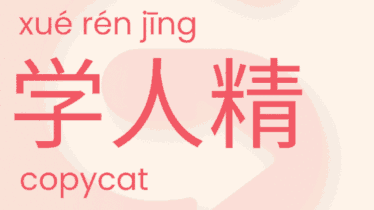How to say Family in Chinese
In Chinese, there are various expressions for “family” and “relatives,” which can be complicated. However, when it comes to parents and siblings, the Chinese terms are relatively easy to remember. Especially for father, it is “爸爸 (bàba)” and for mother, it is “妈妈 (māma),” which sound similar to their English counterparts.
On the other hand, when it comes to grandparents and relatives, there are completely different names depending on the paternal and maternal sides, and even variations across different regions, which can be confusing.
How to say Family in Chinese?
In Chinese, “family” is referred to as “家人 (jiārén)” or “家里人 (jiālǐ rén).” “Relatives” are called “亲属 (qīnshǔ)” or “亲戚 (qīnqī).”
In Chinese, the terms for “father” and “mother” can vary based on the context and level of politeness
| Father | |
| written language | spoken language |
| Fùqin 父亲 |
Bàba(Bà) 爸爸(爸) |
| Mother | |
| written language | spoken language |
| Mǔqin 母亲 |
Māma(Mā) 妈妈(妈) |
express “siblings” in Chinese
| Older brother | Gēge 哥哥 |
| Older sister | Jiějie 姐姐 |
| Younger brother | Dìdi 弟弟 |
| Younger sister | Mèimei 妹妹 |
say “grandfather” and “grandmother” in Chinese
In Chinese, “grandfather” can be translated as 爷爷 (yéye) and “grandmother” as 奶奶 (nǎinai).
Calling each other by their full names or nicknames is common within Chinese families.
In Chinese culture, it is common for family members to address each other by their full names or nicknames. Calling someone by their full name is a unique aspect of Chinese culture, especially in cases where couples may have different surnames.
In the Chinese drama series “Ode to Joy” (欢乐颂 Huānlè sòng), which I have been watching, one of the main characters, Qu Xiaoxiao (曲筱绡 Qū xiǎo xiāo), is referred to by her older brother and parents using her full name, while Guan Ju’er (关雎尔 Guān jū ěr) is affectionately called “Guan Guan” by her parents.
Collection of Real Life Uses for “Family” in Chinese
My father is planning to go on a business trip to Japan.
Wǒ bàba jìhuà dào Rìběn chūchāi. 我爸爸计划到日本出差.
Mom, come and take a look!
Mā kàn yī kàn. 妈,看一看!
(Holding a conversation with a child) Hey, where did your dad go?
Háizi, nǐ bà qù nǎle? 孩子,你爸去哪了?
I often go out to eat with my older sister.
Wǒ chángcháng gēn wǒ jiějie yīqǐ qù chīfàn. 我常常跟我姐姐一起去吃饭.
Brother, don’t drink too much alcohol!
Gē, bié hē tài duō de jiǔ a. 哥,别喝太多的酒啊!
How is your grandmother’s health lately?
Zuìjìn nǐ zǔmǔ shēntǐ hǎo ma? 最近,你祖母身体好吗?
My granddaughter has big, adorable eyes.
Wǒ sūnnǚ dàdà de yǎnjing, kě’ài dé bùdéliǎo. 我孙女大大的眼睛,可爱得不得了。
Don’t miss out on expanding your knowledge – visit our Chinese learning resource page!
Immerse yourself in an unforgettable learning experience! – Book a Trial Chinese Learning Class


